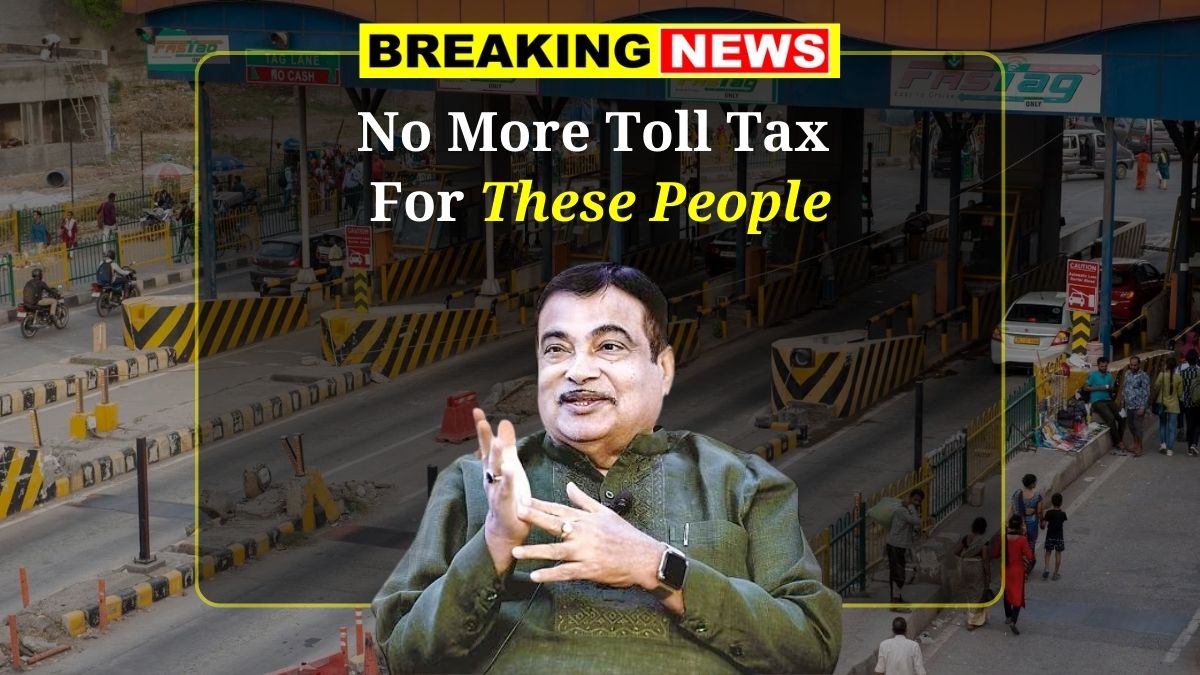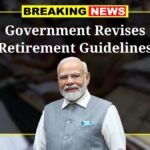Toll Tax – Here’s some great news for a lot of people who spend time traveling on India’s highways—the government has officially expanded the list of toll tax exemptions. That’s right, certain people and vehicles can now travel across the country without paying tolls.
The new rules aim to ease the burden on specific categories like emergency vehicles, government officials, and others who serve the nation or belong to key public service groups.
If you’re wondering whether you or someone in your family is eligible, here’s everything you need to know in simple terms.
What’s Toll Tax and Why Do We Even Pay It?
Toll tax is basically a fee collected when you use highways or expressways. The money helps cover the cost of building, maintaining, and operating these roads. The National Highways Authority of India (NHAI) runs the toll booths across the country.
That said, some people and vehicles are given toll-free access, either because they’re on official duty, involved in emergency services, or because the government wants to support them financially.
So, What’s New in the Latest Update?
The Ministry of Road Transport and Highways recently released an updated notification with a fresh list of people and vehicles that no longer have to pay tolls—anywhere in India. This is a move toward reducing the financial load and making travel smoother for key groups.
Who Doesn’t Have to Pay Toll Tax Now?
Here’s a simple list of who’s exempt:
- President, Vice-President, and Prime Minister of India
- Governors and Chief Ministers of all states
- Members of Parliament (MPs)
- Judges of the Supreme Court and High Courts
- Ambulances and Fire Brigades
- Military and Paramilitary vehicles on official duty
- School buses registered with educational institutions
- Funeral processions
So if you or someone you know falls into one of these categories, you can cross toll booths without paying a rupee, provided you carry the right documents.
Official Toll Exemption Table (Simplified)
| Category | Vehicle Type | What You Need | Where It’s Valid |
|---|---|---|---|
| PM, President, VP | Official cars | Govt ID | All over India |
| Governors, CMs | Official cars | Govt ID | Nationwide |
| MPs | Personal cars | MP ID card | All toll booths |
| Supreme/High Court Judges | Personal or official cars | Court ID | All toll roads |
| Ambulances | Medical vehicles | Hospital certificate if asked | Nationwide |
| Fire Brigades | Fire trucks | Fire department markings | Nationwide |
| Army, Navy, Air Force | Official defence vehicles | Markings or duty papers | Nationwide |
| Paramilitary forces (CRPF etc.) | Duty vehicles | Authorization papers | Across India |
| School Buses | Registered with schools | Proof of school registration | Nationwide |
How Can You Claim the Exemption?
It’s pretty straightforward:
- Make sure your vehicle is clearly marked (especially for emergency/military use)
- Keep the relevant ID or authorization document handy
- Show it at the toll plaza when asked
- In some cases, your vehicle number might already be linked in the FASTag system for automatic toll exemption
What If Someone Tries to Charge You Anyway?
NHAI has strict instructions that exempted vehicles should not be charged tolls. If you meet all the conditions and still get stopped, you can:
- Report the issue to NHAI’s helpline or mobile app
- Mention the incident details like time, location, and toll booth
- Toll staff who repeatedly break the rules could face penalties
So don’t hesitate to speak up if you’re wrongly charged.
Documents You’ll Need
Here’s a quick guide on what to carry:
| Vehicle Type | Required Documents | Need Verification? |
|---|---|---|
| Official Govt Vehicles | Govt ID or Authorization letter | Yes |
| Ambulances/Fire Trucks | Certificates from hospital/fire dept | Yes |
| Defence Vehicles | Department-issued proof or markings | Yes |
| MPs/MLAs | Valid Government ID | Yes |
| School Buses | Proof of registration with school | Yes |
How Are People Reacting?
Public response has been largely positive. People see it as a fair and necessary move, especially for those who serve in public, emergency, or national roles. It’s also being praised as a step toward making road travel a bit more inclusive and efficient.
Yes, tolls are important for road infrastructure, but this update shows that the government is trying to balance revenue with responsibility.
Final Thoughts
If you fall under any of these toll-exempt categories, make sure your documents are up to date and your vehicle is clearly marked. That way, you’ll avoid any unnecessary hassle at toll plazas.
This toll tax exemption update is a thoughtful move by the government, giving much-deserved financial relief and convenience to people who truly need it.
Always double-check with the official NHAI or MoRTH website to stay current with any future updates or rule changes.






